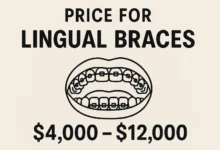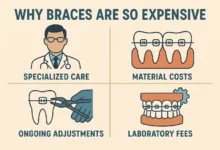Average Cost for Braces Per Month in 2025: What You Really Pay
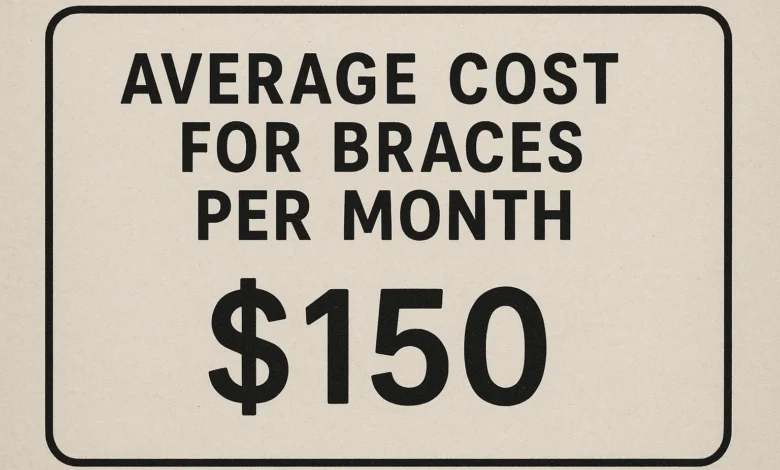
Average Cost for Braces Per Month: Complete Guide for 2025
Introduction
Recent advancements in orthodontic care have greatly expanded patient access, yet a singular concern remains paramount for individuals and guardians: What monthly expense should be anticipated for fixed orthodontic appliances? Therapeutic modality, duration, and available fiscal arrangements introduce a pronounced spectrum of financial obligation.
The present synthesis outlines vital considerations which include systematic cost assessments and enrollee reimbursement protocols and prudent fiscal planning to enable informed consent that balances aesthetic outcome with financial sustainability.
1. What Influences the Average Cost for Braces Per Month?
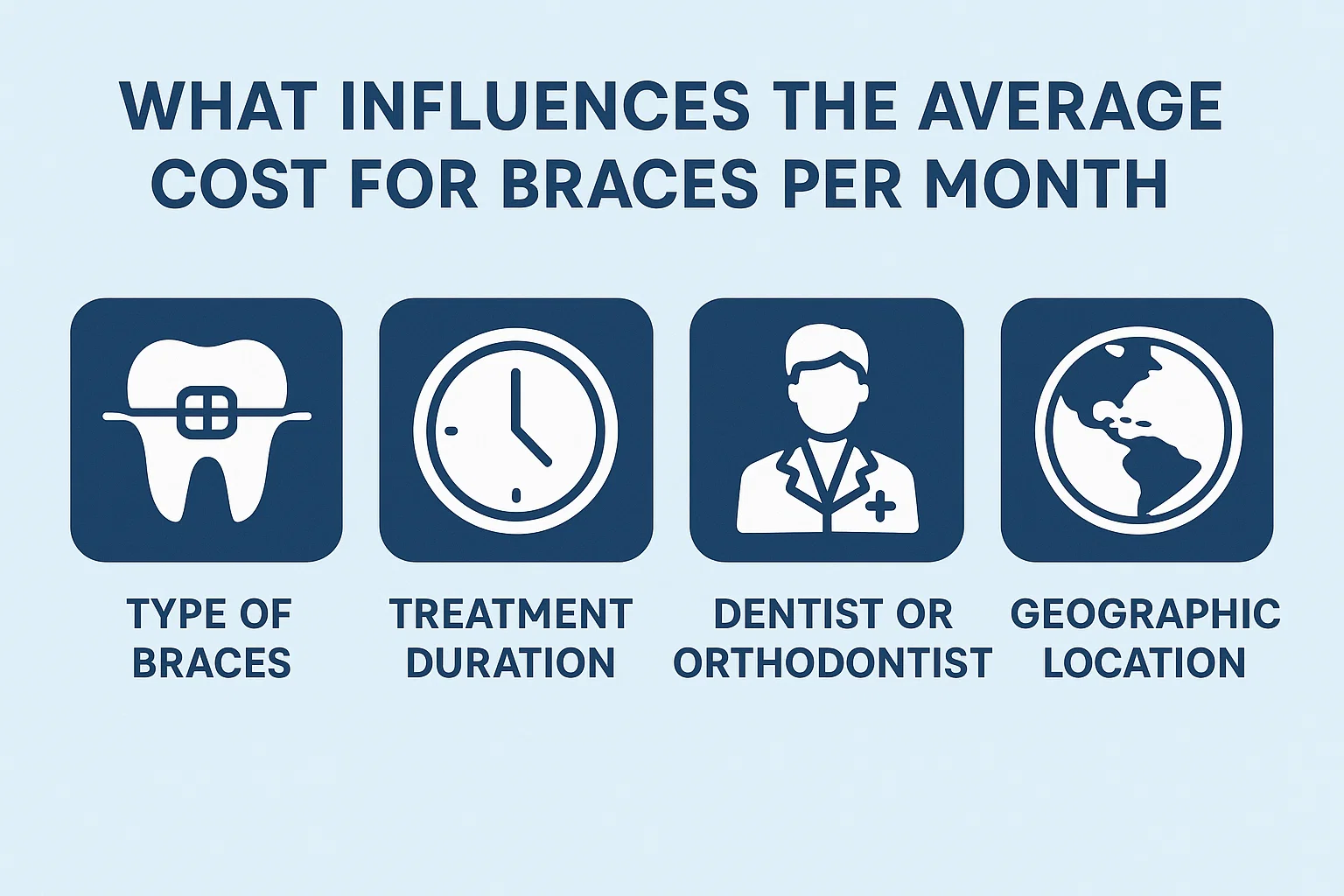
When estimating the average cost for braces per month, several key factors play a role:
Type of Braces: Some types (e.g., Invisalign or lingual) are more expensive than others.
Treatment Duration: Longer treatments = more monthly payments.
Location: Costs vary significantly based on your region or city.
Orthodontist Expertise: Specialists may charge higher rates.
Insurance Coverage: Can drastically reduce monthly out-of-pocket expenses.
Payment Plan: Financing options may include interest or extended terms.
Understanding these elements helps you get a clear picture of what your monthly cost could look like.
2. Types of Braces and Their Monthly Costs
The amount you need to pay each month depends on the orthodontic treatment you choose. Here’s a detailed breakdown.
Traditional Metal Braces
Total Cost: $3,000 to $7,000
Treatment Duration: 18 to 36 months
Average Monthly Payment: $75 to $200/month (depending on financing)
The most widely used and cost-effective orthodontic treatment option is conventional fixed appliances which people commonly call metal braces. Many providers provide affordable payment plans that include no interest charges during the payment period.
Ceramic Braces
Total Cost: $4,000 to $8,500
Average Monthly Cost: $100 to $250/month
Ceramic brackets offer a subtler orthodontic option in comparison to traditional metal brackets; however, this aesthetic advantage is accompanied by a modest premium attributable to the use of synthetic sapphire or polycrystalline ceramics.
Lingual Braces
Total Cost: $8,000 to $13,000
Average Monthly Cost: $200 to $350/month
The placement of lingual braces behind teeth makes them invisible but their application requires advanced skills which increases the monthly expense.
Invisalign (Clear Aligners)
Total Cost: $3,000 to $7,500
Average Monthly Payment: $80 to $250/month
The clear aligner system Invisalign provides flexible monthly payment options to its users. Some providers offer packages with retainers included.
3. National and Regional Monthly Cost Averages
Here’s how the average cost for braces per month varies by region in the U.S.:
| Region | Average Monthly Cost (Metal Braces) |
|---|---|
| Northeast | $150–$300/month |
| Midwest | $100–$200/month |
| South | $90–$180/month |
| West Coast | $120–$250/month |
| Rural Areas | $75–$150/month |
| Urban Areas | $150–$350/month |
The cost of orthodontic treatment depends on location because urban areas tend to have higher expenses because of operational costs and patient demand.
4. Average Cost for Braces Per Month with Insurance
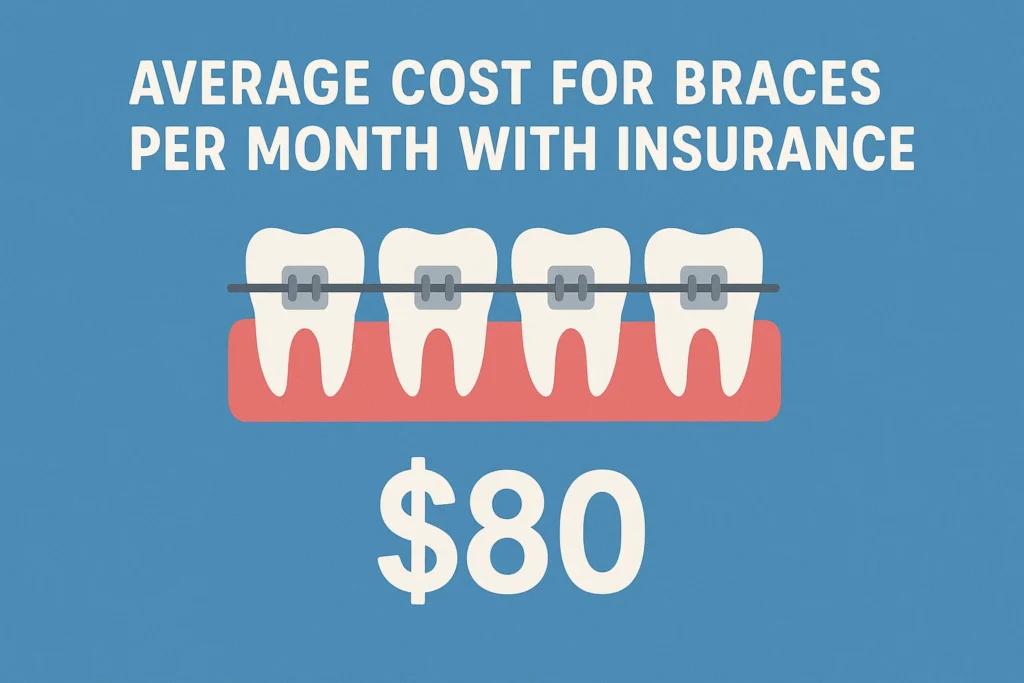
Most dental insurance plans cover 25% to 50% of orthodontic treatment costs, especially for children under 18.
Average Monthly Cost with Insurance:
Metal Braces: $60–$120/month
Invisalign: $100–$180/month
Lingual Braces: $180–$300/month
Always check your plan’s orthodontic lifetime maximum, which typically ranges from $1,000 to $3,000. This impacts how much is subtracted from your monthly bills.
5. Without Insurance: What to Expect Monthly
If you don’t have insurance, your monthly cost depends entirely on your orthodontist’s financing structure.
No Insurance Monthly Averages:
Metal Braces: $100–$200/month
Ceramic Braces: $120–$250/month
Invisalign: $150–$300/month
Lingual Braces: $200–$400/month
Many clinics offer third-party financing such as CareCredit or in-house payment plans to ease the monthly burden.
6. Down Payments and Financing Options
Orthodontists usually need patients to pay an initial down payment which amounts to 10%–30% of the full treatment expense.
For a $5,000 treatment:
Down Payment: $500–$1,500
Remaining Balance: Split into 12–36 months
Interest Rate: 0% to 7%, depending on provider
Common Financing Providers:
CareCredit
LendingClub
In-office payment plans
FSA/HSA cards
Always ask for 0% interest options to minimize long-term costs.
7. Hidden Fees to Be Aware Of
While calculating the average cost for braces per month, be sure to account for:
Initial Consultation: $100–$250 (often waived)
X-rays and Impressions: $250–$500
Broken Bracket Repair: $50–$100 per incident
Retainers Post-Treatment: $300–$1,000
Missed Appointment Fees: $25–$75
Confirm what’s included in the quote upfront to avoid unexpected charges.
8. Medicaid and Braces Cost Per Month
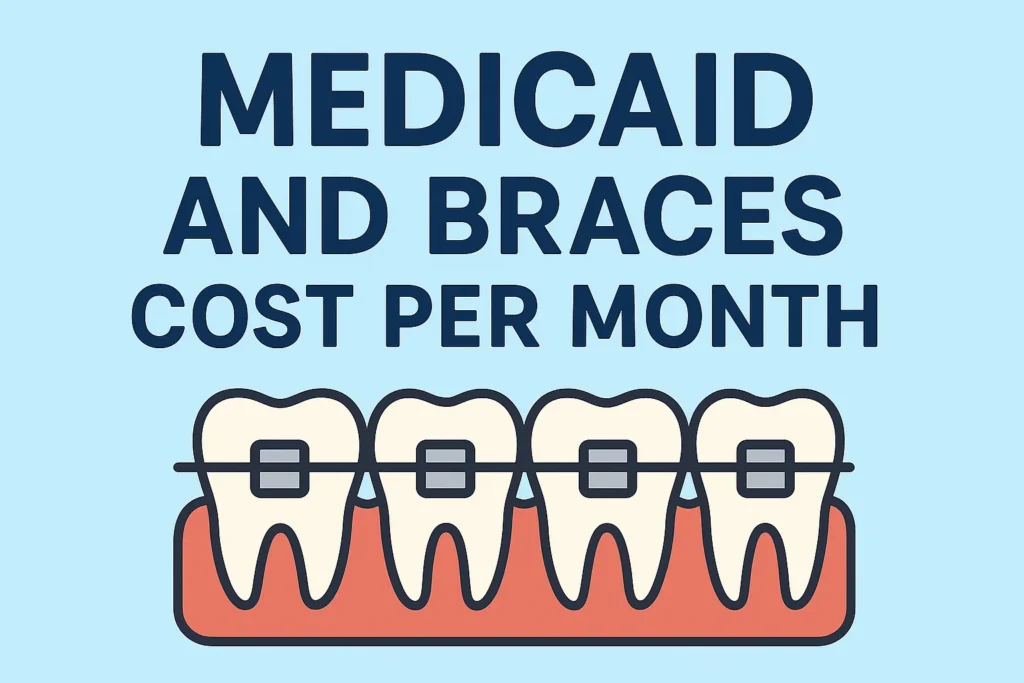
In the U.S., Medicaid may cover braces for children and teens if deemed medically necessary.
Medicaid Coverage Details:
Age Restriction: Usually under 18
Approval Time: 1–6 months
Monthly Cost with Medicaid: Often $0 to $40/month
States with Most Coverage: Texas, Florida, New York, California
Adults usually aren’t eligible unless braces are necessary due to a medical condition.
9. Tips to Reduce the Average Monthly Braces Cost
If the average cost for braces per month seems out of reach, here are some effective ways to lower it:
1. Use Flexible Spending Accounts (FSA) or HSA
Pre-tax dollars can reduce your effective cost by up to 30%.
2. Shop Around
Get quotes from 2–3 orthodontists for comparison.
3. Consider Dental Schools
Dental colleges offer treatment at reduced prices, supervised by licensed professionals.
4. Negotiate Payment Terms
Many orthodontists are open to customizing your payment plan.
5. Look for Seasonal Promotions
Some practices offer back-to-school or holiday discounts on down payments or monthly costs.
10. Final Thoughts: Budgeting for a Confident Smile
The knowledge of monthly braces expenses enables you to prepare your finances and control your spending while preventing unexpected expenses. The orthodontic solutions available today offer financial options that match different budgets for both children and adults who need braces.
Key Takeaways:
Monthly costs range from $60 to $400 based on type and location.
Insurance and Medicaid can significantly lower your payments.
Flexible payment plans make orthodontic care accessible to most families.
Hidden fees can add up — always read the fine print.
Smart financial planning can help you afford the smile you deserve.
Frequently Asked Questions
Q1: Can I pay for braces monthly without a down payment?
Yes, The orthodontist determines the payment options. Some orthodontists provide $0-down payment plans to patients who meet specific credit score requirements.
Q2: Are braces cheaper for kids than adults?
Typically yes, especially with insurance. Adults must pay the full cost unless the treatment is medically necessary.
Q3: Is Invisalign more expensive monthly than metal braces?
Yes, usually $20–$100 more per month, depending on treatment complexity.
Q4: How can I verify if my insurance covers braces?
Contact your provider or ask your orthodontist’s office to perform a benefits check.
Braces Elastic Colours: Top Ideas for a Stylish Smile in 2025
